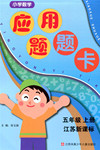题目内容
— Can I sit at the table?
— Sorry, but it _____ already.
— Sorry, but it _____ already.
[ ]
A. was taken
B. has taken
C. has been taken
D. will be taken
B. has taken
C. has been taken
D. will be taken
C

练习册系列答案
 超能学典应用题题卡系列答案
超能学典应用题题卡系列答案
相关题目